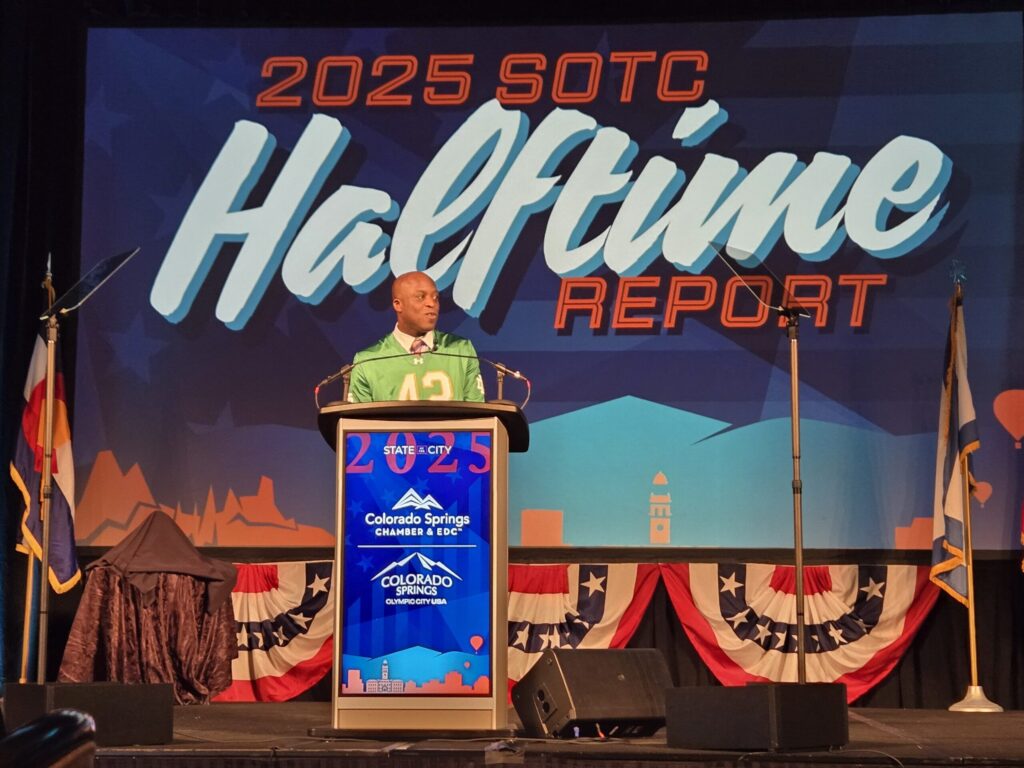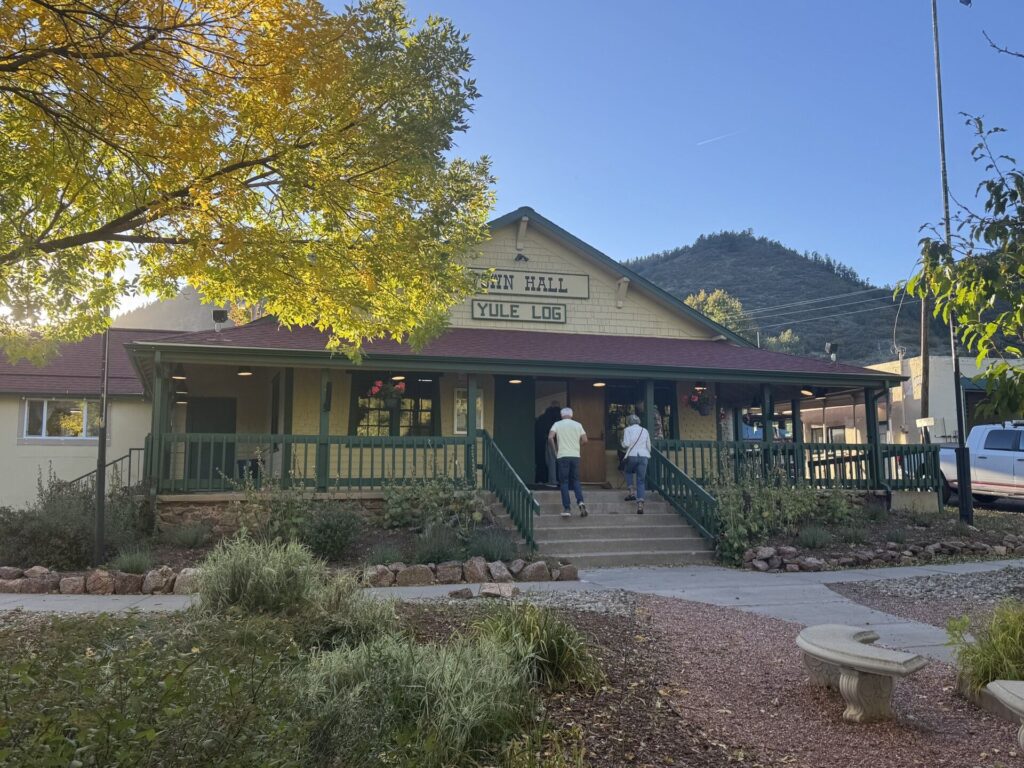Election Results: Colorado Springs voters give a huge ‘no’ to Karman Line annexation
Early results in Colorado Springs’ special election Tuesday night showed voters overwhelmingly rejecting the Karman Line annexation.
The initial results released by the City Clerk’s Office Tuesday night showed 81.7% of voters were against the city keeping the 1,876 acres of annexed land southeast of the city limits, while 18.3% of voters supported the addition.
“We’re very grateful that the citizens of Colorado Springs have come out and let their voice be heard and voted against the annexation,” said Ann Rush, a lead organizer for the campaign against Karman Line.
Around 75,800 votes were counted in the unofficial election results as of 8:20 p.m. The turnout rate probably will overtake that of April’s City Council elections, which saw 78,200 ballots returned.
The annexation had been approved in a 7-2 vote by the City Council in January at the request of local investor group Norris Ranch Joint Ventures. The developers proposed to connect the land 2 miles from city limits by a “flagpole” road annexation in order to build 6,500 single-family homes and a mixed-use commercial district along Bradley Road.
Colorado Springs sets special election for controversial Karman Line annexation
City and El Paso County residents who live near the property launched a petition campaign to force the city to consider a de-annexation. The effort gathered the thousands of signatures needed to trigger a referendum. The City Council chose to place the issue on a special election ballot rather than reverse their previous decision.
Kevin O’Neil, founder of the O’Neil Group and a major investor in Karman Line, said Tuesday that he was disappointed but not surprised by the results. O’Neil said many of the concerns voters had about balancing new growth against public safety and affordability needed to still be addressed.
“We go away, Karman Line goes away, but the community problems do not go away,” O’Neil said.
Karman Line supporters said the development was cleared by Colorado Springs Utilities for its water demands. Norris Ranch leaders argue the project was needed to diversify development on the east side of the city, where Norwood Development owns a majority of the undeveloped land through the Banning Lewis Ranch.
Many of the initial organizers worried that the annexation would stress the city’s public safety responses to the area, and increase Colorado Springs’ water demand and the cost of water infrastructure. Other groups including Citizens Project and the El Paso County Democratic Party opposed the annexation in large part because it was not adjacent to the city limits.
Signatures approved to place Karman Line annexation up for potential voter reversal
Rush said there were a lot of reasons they heard from residents who did not support Karman Line. One major concern was the cost for the water lines to be built out to the new property. Utilities staff told the City Council the water construction would cost at least $100 million, with the developers paying around $76 million.
“I think a lot of people want the city councilmembers to focus on taking care of the city they have, really incentivize building back up the dilapidated areas of the city, and focus on building the properties that are already planned,” Rush said.
“This result does not mark the end of the conversation about growth, housing and long-term planning. It simply means we must find pragmatic pathways forward,” Colorado Springs Mayor Yemi Mobolade said in a statement Tuesday night.
More than $1 million was spent on the Karman Line issue from the beginning of the petition drive in February. To support the development, Norris Ranch set up the committee Stand Against Monopolies and provided $550,000 to sell voters on the benefits of Karman Line.
Defend Colorado, a state group that does not disclose its donors, provided $470,000 of in-kind contributions for the petition campaign and an additional $20,000 in May to oppose the annexation.
“We also have to ask ourselves, is this the new methodology of solving problems in our community, to push ‘dark money?’ To go through different systems than our elected officials?” O’Neil said.
The last one-off special election in Colorado Springs was in 2012, when voters overwhelmingly approved the City Council’s proposal to lease Memorial Hospital to the University of Colorado Health system. The last election challenging a Colorado Springs annexation took place in 1986, when voters opted not to de-annex the Northgate complex at the northernmost area of the city.
Another one bites the dust
The proposed Karman Line annexation is the second major proposed Colorado Springs annexation in the past year that has looked promising to developers only to eventually be denied.
In August, Colorado Springs City Council members reversed their decision to annex 3,200 acres adjacent to Fountain.
The council voted 5 to 4 to reverse a vote it took Aug. 1 to accept the annexation. La Plata Communities was pitching the annexation the company envisioned as a subdivision called Amara that could be home to 9,500 homes plus millions of square feet of retail space, schools, parks and public facilities over the next 25 years.
The council voted to change its decision after hearing serious questions from business owners facing high costs. They also heard concerns from the leaders of Manitou Springs and Fountain and farmers in the lower Arkansas Valley.
Colorado Politics Must-Reads:











